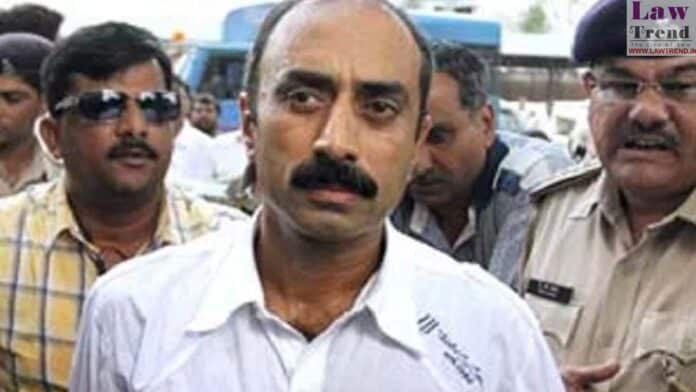The Supreme Court of India on Tuesday rejected the plea of former Indian Police Service (IPS) officer Sanjiv Bhatt seeking bail and suspension of his life sentence in a 1990 custodial death case. However, the Court assured that Bhatt’s pending appeal against his conviction would be heard on a priority basis.
A Bench comprising Justices Vikram Nath and Sandeep Mehta pronounced the decision in open court, stating:
“We are not inclined to grant Sanjiv Bhatt bail. The prayer of bail is dismissed. The hearing of appeal shall not be affected. The hearing of appeal is expedited.”
Background of the Case
The case arises from an incident that took place in October 1990, when Sanjiv Bhatt was serving as the Additional Superintendent of Police in Jamnagar district, Gujarat. Following communal riots triggered by a Bharat Bandh called by the Bharatiya Janata Party (BJP) and the Vishwa Hindu Parishad (VHP) in protest against the arrest of BJP leader Lal Krishna Advani during his Rath Yatra to Ayodhya, Bhatt detained 133 individuals under the Terrorist and Disruptive Activities (Prevention) Act (TADA).
One of the detainees, Prabhudas Vaishnani, died after being released from custody. His family alleged that he had been subjected to custodial torture by Bhatt and other officers. Vaishnani had been in custody for nine days before being granted bail, and later succumbed to renal failure.
An FIR was registered in connection with the custodial death, and a Magistrate took cognisance of the case in 1995. Seven police personnel, including Bhatt, two sub-inspectors, and three constables, were charged in the matter.
A Sessions Court in Jamnagar convicted Bhatt and another officer, sentencing both to life imprisonment. The Gujarat High Court, in January 2024, dismissed Bhatt’s appeal challenging the conviction and sentence. Bhatt then approached the Supreme Court, which issued notice to the State of Gujarat in August 2024.
Pending Appeals and Other Cases
While the Supreme Court has now declined interim relief in the form of bail or suspension of sentence, it has directed that Bhatt’s appeal be heard expeditiously.
Bhatt also faces legal proceedings in two other matters. In a 1996 drug planting case, he was convicted by a sessions court and sentenced to 20 years’ imprisonment. His appeal in that case is currently pending before the Gujarat High Court.
In a separate 1997 custodial torture case, Bhatt was acquitted by a Magistrate court in December 2024.
Legal and Political Significance
Sanjiv Bhatt, who was dismissed from service in 2015, has remained a controversial figure, frequently at the centre of legal and political disputes. His conviction in the custodial death case has drawn public and media attention, especially given the larger communal and political backdrop of the 1990 riots.




